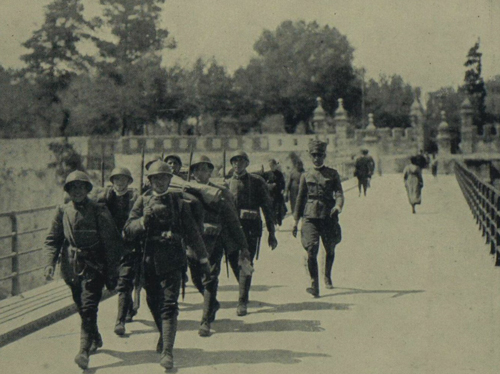Greek anger at handover of 50m lire to force Mussolini’s evacuation of Corfu
Corfu, 2 October 1923 - Ireland fears that the work the League of Nations has undertaken to try and instil peace in Europe will be undone following the ongoing conflict between Italy and Greece.
Although Benito Mussolini’s Italian forces have evacuated the Greek Island of Corfu, their exodus has brought little relief to an Athens administration aghast at the granting of practically all of Italy’s demands. It is understood that, acting upon an instruction from the Greek government, the National Bank of Greece has telegraphed to the Swiss National Bank ordering the payment of a deposit of 50 million lire to Italy.
This was the very amount that Italy demanded of Greece following the murder of Enrico Tellini, an Italian general, and his team which had been involved with a commission working to resolve a border dispute between Greece and Albania. When Greek authorities refused to yield to his demands, Signor Mussolini ordered his troops to bombard and then occupy the island.
Signor Mussolini also denied a role for the League of Nations in a resolution of the dispute, which was achieved instead through the agency of the Conference of Ambassadors.
Pathé newsreel footage of Corfu in 1923, the Greek island was seized by Italy and became Europe's new "storm centre."
If the withdrawal of Italian troops from Corfu resolves the immediate crisis, this incident is certain to have long-term implications for the future stability in Europe given the sidelining of the League of Nations in the course of the affair. Indeed, the second speech delivered on Ireland’s behalf to the League of Nations Assembly has addressed the very purpose of the League in the context of the Corfu crisis.
The chief concern of the Free State, according to Prof. Eoin MacNeill, Minister for Education, was less the manner in which this Italian-Greek dispute was resolved than the fear that the work that had been done would be undone. ‘The test of our desire for peace’, MacNeill said, ‘the test of our sincerity, the test of our fidelity to our principles to which we have subscribed must be held to our willingness and our readiness when a rupture arises to have recourse in the first instance to the means of settlement which the League of Nations can afford.’
Meanwhile, the Greek government has lodged its protest at the decision of the Conference of Ambassadors which it believes to be excessive and disproportionate to the economic resources of the country, which had just secured a loan with the Bank of England for the purpose of beginning the costly work of housing innumerable refugees.
[Editor's note: This is an article from Century Ireland, a fortnightly online newspaper, written from the perspective of a journalist 100 years ago, based on news reports of the time.]





















